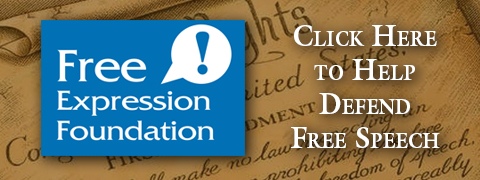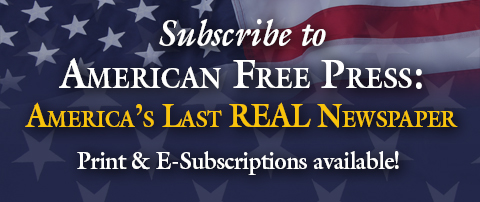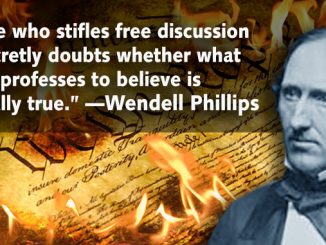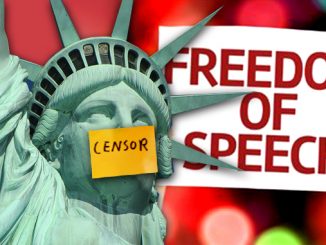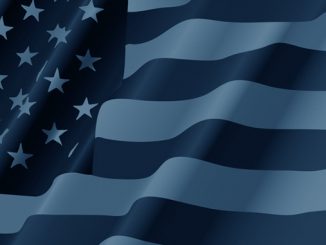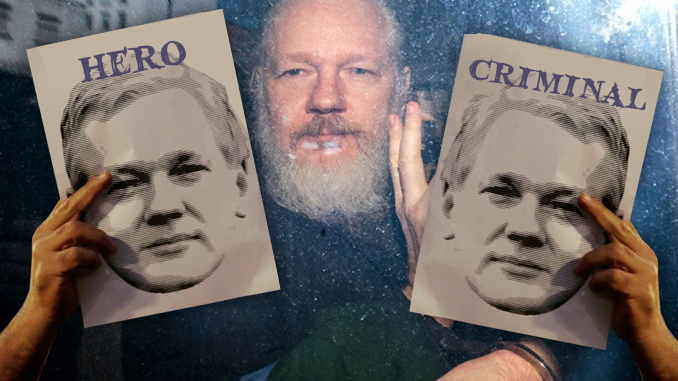
With the UK’s arrest of WikiLeaks founder Julian Assange after Ecuador withdrew asylum, accusing him of “interfering in internal affairs of other states,” questions arise over free speech and journalistic credentials. Not only does he face charges in Britain but also “conspiracy to commit computer intrusion (hacking)” in the U.S. and whatever other crimes the Department of Justice chooses to accuse him of. The public debate over just who and what the First Amendment applies to will continue to rage at least until the U.S. presents its legal argument for extradition to the UK.
By S.T. Patrick
As he screamed, “This is unlawful. I am not leaving,” a bearded, disheveled Julian Assange was dragged from the Ecuadorian embassy where he had resided under asylum since June 2012. Assange, the founder and director of WikiLeaks, was immediately taken to a central London police station before pleading not guilty in court on a 2012 charge of failing to surrender. District Judge Michael Snow quickly found Assange guilty and rushed him to Southwark Crown Court for sentencing.
Assange faces up to 12 months in a British prison, but a more immediate concern for attorney Jennifer Robinson is his possible extradition to the United States, where an awaiting conspiracy to commit computer intrusion (hacking) charge carries a maximum of five years in prison.
“It’s called conspiracy. It’s conspiracy to commit journalism,” a representative of Assange said outside of the British court, adding, “There is no assurance that there will not be additional charges when he is on U.S. soil.”
CNN later reported that Department of Justice (DoJ) officials do intend to bring additional charges against Assange.
Assange, an Australian national, had entered the Ecuadorian embassy under asylum when the UK’s Supreme Court ruled that he must be extradited to Sweden to face charges of sexual molestation, sexual coercion, and rape. Assange contended that the charges were “without basis.” Swedish prosecutors dropped the molestation and coercion charges in 2015; the rape charge was dropped in 2017. Ecuador had withdrawn asylum last week, which allowed its ambassador to legally invite Scotland Yard into the embassy to arrest Assange.
Assange had been at odds with Ecuador’s President Lenin Moreno for over a year. According to Moreno, the tipping point was the WikiLeaks release of Vatican documents in January. Ecuador had “reached its limit on the behavior of Mr. Assange,” Moreno said. “This and other publications have confirmed the world’s suspicion that Mr. Assange is still linked to WikiLeaks and therefore involved in interfering in internal affairs of other states.”
Ecuador’s decision to withdraw asylum had come on the heels of a WikiLeaks accusation that the embassy had been involved in an “extensive spying operation” against Assange. Ecuador had also recently denied an accusation that it was planning to expel Assange.

The U.S. extradition request and the pending charges behind it specifically relate to the Justice Department claim that Assange conspired with the currently jailed Chelsea Manning to hack into classified U.S. government computers. The charges are very narrow so as to try to escape the debate over whether Assange and WikiLeaks are entitled to freedom of the press protections.
Who gets protected under the freedom of the press? U.S. law is intentionally vague regarding press freedoms. The freedoms apply to all citizens and are litigated on a case-by-case basis. Extending constitutional protections to a specific group of people called journalists would force the courts to decide who is and who isn’t a journalist. Glenn Greenwald of news website “The Intercept” wrote:
To begin with, the press freedom guarantee of the First Amendment isn’t confined to ‘legitimate news outlets’—whatever that might mean. The First Amendment isn’t available only to a certain class of people licensed as ‘journalists.’ It protects not a privileged group of people called ‘professional journalists’ but rather an activity: namely, using the press (which at the time of the First Amendment’s enactment meant the literal printing press) to inform the public about what the government was doing. Everyone is entitled to that constitutional protection equally: There is no cogent way to justify why the Guardian, ex-DoJ officials-turned-bloggers, or [national security blogger] Marcy Wheeler are free to publish classified information but Julian Assange and WikiLeaks are not.
Kathleen Parker, writing for The Washington Post and defending the profession of establishment journalism, wrote, “The difference between someone like Assange publishing whatever leaks and lands in his lap and, say, the Post, which published the leaked documents known as the ‘Pentagon Papers,’ is mostly a lot of worry and process. … He is not, after all, a journalist, despite his claiming to be, because he isn’t accountable to anyone. No filters, no standards.”
Blogger Caitlin Johnstone noted that WikiLeaks has won six awards for journalism since 2011, though she also believes the “journalist-or-not” argument is a false debate.
The claim that Assange is ‘not a journalist’ is both an irrelevant red herring and a self-evident falsehood,” wrote Johnstone. “It is made not by people with an interest in maintaining a small and specific linguistic understanding of what the word journalism means, but by people who want to see Julian Assange imprisoned by the same government which tortured Manning because he made them feel emotionally upset. It’s a fact-free argument made entirely in bad faith for inexcusable motives: the desire to see a journalist imprisoned for telling the truth.
The U.S. has until June to present its legal argument for extradition to the UK. Until then, the public debate over Assange, Manning, the definition of journalism, leaking classified information, and the role of the growing “citizen journalist” movement will impact the public and political debate nationally.
S.T. Patrick holds degrees in both journalism and social studies education. He spent 10 years as an educator and now hosts the “Midnight Writer News Show.” His email is [email protected]. He is also an occasional contributor to TBR history magazine and the current managing editor of Deep Truth Journal (DTJ), a new conspiracy-focused publication.
Real Purpose of Assange Indictment
The U.S. government wants to make sure nobody exposes its crimes ever again.
By Paul Craig Roberts
Let’s be sure that we understand that WikiLeaks founder Julian Assange is not charged with anything related to Russia or Russiagate or even with breaking a law. Assange is charged with being in a conspiracy with whistleblower Chelsea Manning “to commit computer intrusion.” The charge is not that Assange succeeded in hacking a government computer and obtaining classified information. It merely says that Assange discussed the possibility with Manning and had an intention to hack a computer. Most likely, even this non-crime is an invention of prosecutors instructed to indict Assange in the absence of any evidence. It is all that they could come up with.
It is impossible to respect the indictment. It is the product of evil, and the evil indictment is a direct assault on the First Amendment. Those who have brought this false charge have violated their oath to protect the Constitution from enemies abroad and at home. It is the enemies at home who we have to be concerned about, as it is these enemies who have power over us.
If the U.S. government had any evidence that Assange actually hacked a government computer, he would be charged with that. But as there is no evidence of an actual crime, the corrupt American prosecutors and a stupid and manipulated grand jury rolled out the conspiracy charge. A conspiracy is when a couple of people planned a bank robbery but didn’t do it. In other words, they thought about it and talked about it. Therefore, a conspiracy existed although nothing really happened.
Prosecutors and courts have corrupted the actual law to the point that a person can be arrested for considering a crime. In other words, “thought crimes” already exist. They are called “conspiracies.” Now that they have machines that they claim can read our minds, if you think about murdering someone, you can be arrested for “conspiracy to commit murder.”
Another example is when two or more people talk about getting some narcotics and having a high evening but instead watch a movie and go to bed. They could be charged with “conspiracy to obtain illegal narcotics.”
This is the type of charge for which Assange faces extradition to Washington.
Why? The answer is that the criminal, petty, and vindictive U.S. government wants to get revenge on Assange for publishing documents leaked to him, allegedly by Manning—but we don’t have any proof of that, either, other than a coerced admission from a tortured person—that reveal U.S. war crimes and deception of allies, and to shut down the First Amendment so that the government’s crimes can never again be revealed by journalists. This is Washington’s way of solving the whistleblower problem.
The charge against Assange has nothing to do with the leak of the emails that revealed how Hillary Clinton stole the Democratic presidential nomination from Bernie Sanders. Computer experts such as William Binney have proven that the Democratic emails were downloaded on a thumb drive, not hacked over the Internet. Most likely the Democratic National Committee (DNC) employee who leaked the incriminating emails is [Seth Rich] who was mysteriously shot down in the street in an unsolved murder that Hillary and the DNC most certainly do not want solved.
The British government, a vassal of Washington, arrested Assange inside the Ecuadoran embassy in London on the pretext that he was wanted for skipping bail.
This arrest is the end result of the British, in compliance with Washington’s orders, seizing Assange in response to a request from a Swedish prosecutor who was put up to renewing the investigation of Assange and requested Assange’s extradition to Sweden for questioning.
According to law, extradition requires a formal charge or indictment against the person whose extradition is requested. It is outside the law to extradite people for questioning. The extradition request was doubly troubling as Assange while in Sweden had already been questioned by prosecutors who found that there was no case against him. No charges were ever filed against Assange, and the investigation was closed.
The media and crazed feminists have lied through their teeth for years that Assange used his political asylum to escape rape charges. Even non-media, such as Russian English language media, have repeated this disinformation.
There were never any rape charges against Assange. What happened is this: Two Swedish women took Assange into their beds in their homes and had consensual sex with him. No condom was used. The women or one of them wanted Assange to take a test so she could be reassured that he had no disease that could be sexually transmitted. Assange foolishly refused. The woman went to the police to see if Assange could be coerced to take the test. Out of this came the investigation that was closed without charges. Assange was free to leave Sweden.
He foolishly went to the UK, Washington’s prime puppet state. Once there Washington prevailed on a female Swedish prosecutor to reopen questioning of Assange.
No real reason was ever given for the female Swedish prosecutor to reopen the questioning. One possible reason is Washington’s money. It was clear to Assange’s lawyers that the extradition request was a trick to get him back in Swedish hands so that he could be handed over to Washington. Assange fought the extradition, but a corrupt British court complied with Washington and ruled that Assange could be extradited for questioning even though there were no charges against him. This ruling shocked everyone who thought British judges had integrity.
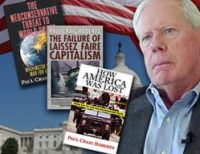
Seeing what was coming, Assange sought and was granted political asylum by Ecuador and fled his British house arrest to the Ecuadoran embassy in London.
Eventually the Swedish feminist prosecutor who attempted to reopen the investigation of Assange consented to question him in the embassy with the result that she closed her investigation. This ended all excuses for the UK to hold Assange for Sweden. As there was no charge, Assange was not guilty of violating bail. Without a charge there is no bail. That is the way the law used to be before the corrupted British courts undermined the law and dishonored British justice.
The U.S. and UK governments refused to honor Assange’s political asylum, just as the Soviet government refused to honor the political asylum that the United States gave to Hungarian Cardinal Jozsef Mindszenty, who ended up living in the U.S. embassy in Hungary for 15 years. At least the Soviets had more integrity than to arrest the cardinal inside the U.S. embassy. But the British are devoid of integrity. The only concern of the British government is to obey Washington. They all hope for the 60 million pounds that is Tony Blair’s reward for supporting Washington’s Iraq invasion.
Dr. Paul Craig Roberts was assistant secretary of the U.S. Treasury under President Ronald Reagan and was associate editor and columnist at The Wall Street Journal. He has been a professor of economics in six universities and is the author of numerous books available at the AFP Online Store.


